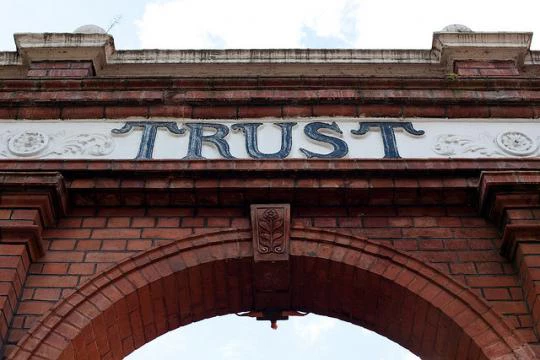I joined Facebook in 2007. For years, I would boast that I got all my news from Facebook and the Daily Show, an American satirical television program, which delivers fake news reports. I should be embarrassed to admit this, but perhaps it was inevitable. I certainly didn't feel connected to news sources, or government press services, so Facebook and fake news somehow felt more authentic and trustworthy than the traditional means of accessing information.
Declining trust in media institutions - contributor 2 disconnected audiences over time. We have opp 2 fill trust gap @NicDawes #dbootcampsg
— Sandra Moscoso (@sandramoscoso) October 26, 2014
Like many others, concerned about privacy, I’ve recently lost that ‘trusting’ feeling towards Facebook. I struggle with who I can trust with my data, my time, my money, and my support. And frankly, I can no longer stay awake late enough to watch the Daily Show.
How do we build trust? How do we connect with our constituencies? How do we partner with them to tackle society's challenges, big and small?
These are the issues institutions grapple with, whether they are governments, non-governments, businesses, or media and news organizations.
At a recent data literacy bootcamp in Singapore, Nic Dawes, Chief Content Officer and Editor of the Hindustan Times (HT), raised the issue of declining trust as a contributor to the audiences' growing disconnect over time. Nic, who is currently in the process of revamping HT's newsroom , shared with the bootcamp participants his vision of how to go about building trust (spoiler - it's no easy feat).
In order to build trust among their audiences, news organizations need to invest in:
- evidence-based journalism that shows it's work - not just using, but showing source data.
- 'giving back' to engaged audiences by building out journalism as a service - make news useful for personal decision-making and make it actionable.
- building deep capacity to understand audiences - they're talking, are we listening?
According to Chia-liang Kao, one of the organizing members of Taiwan’s g0v, engagement is rooted in inclusion. G0v is a diverse community of 81, 000 online and off-line members, that tackles social problems with the use of technology and by making complex data accessible and understandable to citizens. For example, http://fact.g0v.tw/ communicates complex political issues via simple fact-based timelines.
While the idea of a civic tech or civic hacking community is not unique to Taiwan, what is unique about g0v is their inclusive approach. They seem to go the extra mile in encouraging collaboration with government and building participation into their work. Their national budget visualization project, for example, not only makes the budget digestible to the everyday citizen, but it enables citizens to express their views on how the budget should be allocated.
This collaborative approach has enabled g0v to create an environment where trust can be built. It's an approach where all voices (citizens', government's, companies', etc ) have the opportunity to be heard. If voices can be heard, there’s a good chance that someone (or many ones) is (are) listening.
In Singapore, it was exciting to imagine how large institutions could learn from g0v's approach to building trust. Could we adopt civic hacking models or embed civic techies into government agencies (like Code for America fellows), newsrooms (like Open News fellows) or NGOs (like Code for Africa) and expect engagement, collaboration, and trust to follow?
Unlikely. I don’t imagine that a government, or any other institution, could manage to do this on its own.
Trust is built when all who are involved combine efforts, display willingness to listen, and are inclusive in their efforts.
Again, I think Nic Dawes says it best in describing the future of media. I believe this applies to all institutions:
.@NicDawes compares media to coral reef, which thrives when sharing space with fish, plants, ecosystem. #opendata #dbootcampsg #ddj rockstar
— Sandra Moscoso (@sandramoscoso) October 26, 2014



Join the Conversation